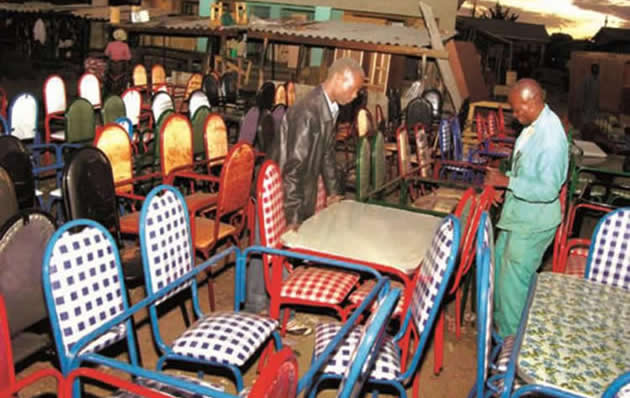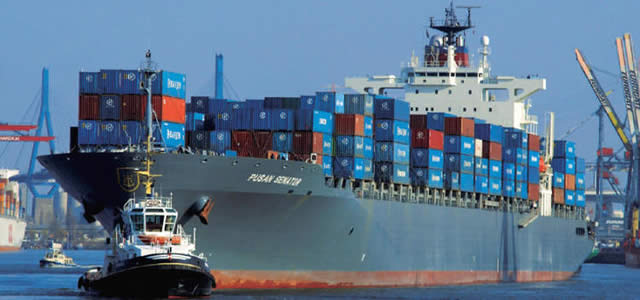‘Hard work more vital than downloading ideas’


Small enterprises and their families can easily adjust depending on their performance while companies cannot adjust because of contractual agreements
Charles Dhewa
The transition of the Zimbabwean economy from formal to informal has presented diverse challenges and opportunities to many people. Opportunities no longer come in nice boardrooms and conferences where ideas are presented on power point. Neither can the most useful business ideas and solutions be discovered through stage-managed presentations to investors.
Some of the greatest business ideas may be hiding in trash or garbage and hard work as opposed to shiny office buildings or college corridors.
If ambitious young people and investors continue looking for business opportunities in the wrong places, they surely will not find them.
From national to household levels, formal adjustments are lagging behind the prevailing situation. At each level, there are attempts to maintain systems and standards of living that have been created over the past decades. Anything on the contrary is considered a negative unless it is in the positive.
If you used to earn a certain level of income and suddenly you earn less, that tells you to adjust in line with the prevailing context. From a business perspective, most formal companies are failing to adjust their structures and performance to uncontrollable factors like competition.
The Zimbabwean economy is now more about hard work than downloading ideas on the internet.
From employees to business owners
Our economy used to be dominated by formal companies that have now been broken down into smaller units. Those who have survived through their experience and knowledge will tell you the economy is quite good.
We have more than 2 million people who were formerly employed and earned monthly incomes, moving out of formal employment and being paid by their own small businesses.
They are moving from being employees to business owners. From formal companies, some have migrated with their opportunities, networks and customers on whose base they are now manufacturing, trading, etc.
That is why most former big companies have become white elephants.
At national level, due to the fact that knowledge systems are not moving with the times, at least 60 percent of the Gross Domestic Product (GDP) is now going unrecorded.
Small enterprises and their families can easily adjust depending on their performance while companies cannot adjust because of contractual agreements.
Formal companies also have problems with unsustainable salaries and maintaining equipment in a shrinking market that is now being eaten away by former employees who have set up their small enterprises in the same line of business.
We have now come to a point where the game is more about fulfilling customer-specific production at a small-scale.
In the informal market you can buy anything from as little as a coin to any amount.
You can also place an order and goods are supplied.
For instance, consumers in high density areas simply place orders with vendors who go to buy in agriculture markets and they get what they want.
Those in remote areas such as Guruve, Binga, Nkayi, Chikombedzi or Muzarabani also place orders and goods are supplied on buses, kombis and trucks.
The Government used to be a big customer for most formal companies, for instance, through safety net programmes like supplying maize and maize meal to cushion against drought. That is why the Grain Marketing Board (GMB) did not bother pursuing a profit motive.
In addition, many formal companies used to survive on government tenders. Now the tables have turned. What is emerging is that government should be on its rightful position of creating a conducive environment in the form of infrastructure (market sheds refurbishment), road maintenance, etc.
Once people are satisfied with government services like infrastructure, they are surely willing to pay tax and other needs.
From wage employment to inconsistent informal incomes
There has been a huge shift from formal wage employment to inconsistent informal income streams. The majority still hanging in the formal silo mind-set cannot adjust to start small. On the other hand, Small and Medium Enterprises (SMEs) on the growth trend see opportunities to realise their career path.
It has become a mixed bag where a big player’s challenges are opportunities for small guys. Recognition and support for the existing SME economy is critical. Traders and SMEs know what they want. Unfortunately, few government institutions have taken time to understand what this billion dollar economy requires in order to function properly.
Key Government ministries should be seen coming in to work with low level structures like market committees and communities of practice at community level. You don’t need a big structure like a whole ministry of SMEs but structures for participation which empower communities to support their own systems.
It is a question of supporting these community structures so that they become a chain of reporting to particular ministries. They will just need a framework on how to dialogue and manage the flow of ideas.
Why SMEs should not be a ministry
In a recent survey conducted by eMKambo, the majority of respondents (71 percent) indicated that issues to do with SMEs should not be under a ministry but cut across all economic ministries such as agriculture, mining, industry & commerce and tourism.
According to one respondents, “With the exponential growth of the SMEs sector, it is becoming impossible to clearly define small, medium and large. The number of employees cannot say anything about whether a business is an SME or not.
‘‘What should be considered is impact along the value chain. For instance, what is the impact of a trader who buys 100 crates of tomatoes on transport, turnover, packaging, etc ? If anything, the SMEs department can be under the ministry of industry and commerce”.
Some large companies are now surviving on SMEs who buy bananas. From the market angle, those companies still surviving have actually become a collection of SMEs who buy commodities like drinks and sell in small entities.
The company only concentrates on production while the market has become SMEs-driven. Most former big companies no longer have business models of their own. Any financial inclusion model should look critically at these issues where SMEs have become more like subsidiaries of previously large corporations.
People’s agriculture markets are an example of institutions made up of diverse enterprises of different sizes. Some are small in size but big in revenue, for example, those dealing in high value commodities. Size no longer matters.
If these issues are not taken into account, there is a danger of building policy frameworks which exclude the right participants like traders and farmers.
How financial inclusion comes into the mix
Given its recent interest in financial inclusion, the Reserve Bank of Zimbabwe (RBZ) can start by supporting this notion in agriculture markets which have already been tested over the past few years.
Lessons from agriculture markets reveal the important to emphasizing clusters of businesses rather than associations. Clusters are about businesses, similarities and proximity while associations are about people.
Clustering is important for assessing viability of any models within a framework unlike where businesses are scattered all over. If you have 5000 association members scattered all over, you can’t accurately tell if their businesses have similar performance characteristics.
Unless you develop clusters with a hub which connects all the nodes according to proximity, you won’t get a correct sense of size or challenges.
While the RBZ is nudging every bank to have a financial inclusion strategy, there is need to regulate all financial inclusion initiatives.
If not properly organised, competition among financial institutions can create a burden on the informal sector. Each financial institution should try to answer this question: What is our selling point? Too much selling of the same loan products can create chaos. As part of regulating these initiatives, the RBZ can stipulate that total loans should not be more than one quarter of the amount circulating in the agriculture market.
Financial inclusion is not only about loans. What other services are on offer? In the financial inclusion stampede, banks should not destroy existing systems and coping mechanisms such as rounds and traders’ own funeral policies that have been built around relationships and trust over generations and represent the strengths of the social fabric among traders or SMEs.
Too much formalisation has its own pitfalls as shown by the recent collapse of global financial systems. Banks should not think providing funding is doing the informal market a favour.
The markets are already functioning so banks should strive to create spaces for themselves in the market. They should not force themselves into the market. Injecting too much money to chase a few goods can create an inflationary environment in the market.
The formal economy had packages linked with companies, eg salaries could build one’s record. On the other hand, the informal sector is a private institution where the best services are quickly shared by everyone.
Any differences can push some formal institutions out while some banks can end up monopolising the informal sector, leading to a cut throat competition to everyone’s disadvantage.
A smart financial inclusion framework should also build a collateral system independent of immovable assets to avoid collateral-related challenges and excuses. It should also be designed to prevent double-dipping by introducing in-built role definition in the whole initiative.
- Charles Dhewa is a proactive knowledge management specialist and chief executive officer of Knowledge Transfer Africa (Pvt) (www.knowledgetransafrica.com ) whose flagship eMKambo (www.emkambo.co.zw ) has a presence in more than 20 agricultural markets in Zimbabwe. He can be contacted on: [email protected] ; Mobile: +263 774 430 309 / 772 137 717/ 712 737 430.










Comments